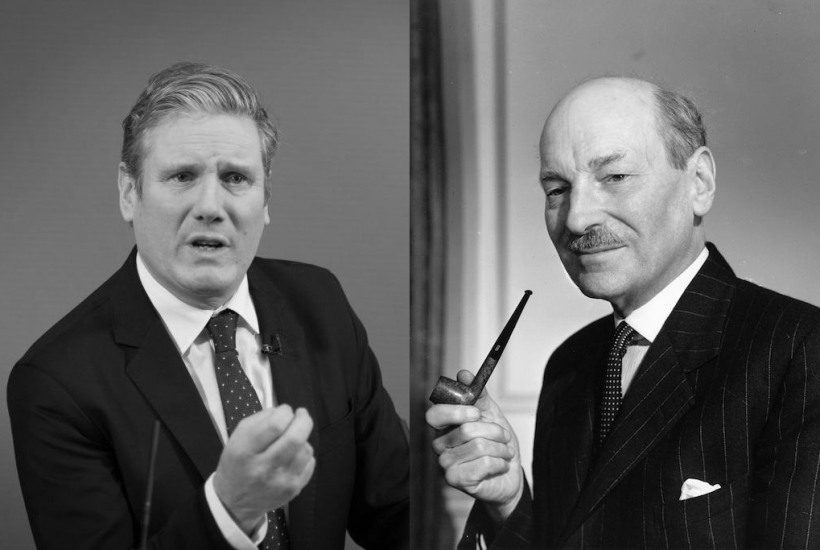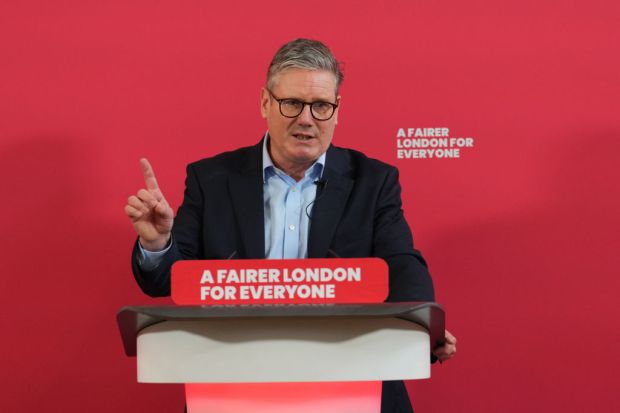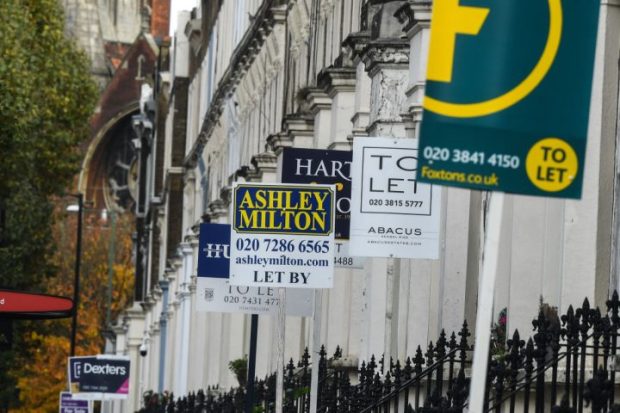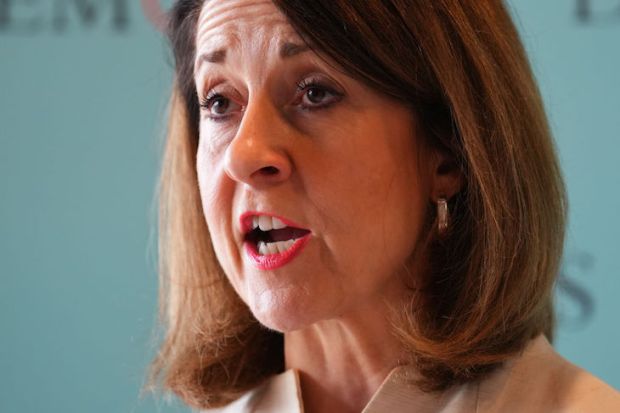The right is usually much better than the left at harnessing the awesome power of the folk memories that surround Britain’s heroic second world war struggle.
The idea of British exceptionalism at its most evocative moment between 1939 and 1945 was crucial to Brexit and crucial to securing popular backing for the Falklands War a generation earlier too.
So for Keir Starmer to base his economic pitch for power not on modern monetary theory or any other piece of leftish guru-jargon, but instead on drawing parallels with the reforming post-war Labour administration of Clement Attlee is smart politics.
The Attlee government has a powerful mythology of its own that adds up to Labour’s best patriotic story, as Starmer set out on Thursday.
The plot runs as follows: people unite in a great national effort against a prevailing evil and after triumphing over it, assisted by the coordinating power of the state, resolve that the spirit of togetherness must be sustained via a more socialist approach. Hence Churchill the great war leader gets dumped and Attlee and his crew of progressive patriots build the post-war welfare state, with the NHS as the jewel in the crown.
Fast forward three-quarters of a century and Covid is Hitler, Boris gets to be Winston – but only in respect of being unsuited to leading the country after the crisis – and Starmer is Clement Attlee.
The role of Herbert Morrison, Attlee’s deputy and the organiser of Labour’s victorious 1945 election campaign, has not yet been allocated. Perhaps he has a descendant lurking in the Labour undergrowth who might wish to step in.
The post-war narrative isn’t subtle, of course. But clunky is one thing Starmer does quite well and he was happy to draw the parallel repeatedly in his ‘big’ economic speech this week.
‘I believe there’s a mood in the air which we don’t detect often in Britain. It was there in 1945, after the sacrifice of war, and it’s there again now. It’s the determination that our collective sacrifice must lead to a better future,’ he declared.
A little later the same notion recurred: ‘During the last year, my thoughts have returned time and again to the wartime generation; those who suffered through the horrors of world war two; who rebuilt Britain from the rubble of the Blitz; created the NHS and built millions of homes fit for heroes.’
And a few paragraphs later came a third rendition: ‘I believe people are now looking for more from their government – like they were after the second world war.’
So what might this ‘more’ look like? More public spending, for starters: retaining the emergency Universal Credit uplift permanently; giving public sector workers substantial pay rises; more funding for local government.
And more action against the inequality that grew during a decade of ‘Tory’ austerity too. Or, as Starmer put it: ‘We can’t waste anyone’s talents. We can’t accept that some regions of our country are being held back.’
Sustainable public finances were cast as something to navigate back towards slowly and in the long-run, an imprecise time span that culminates, as the great economist JM Keynes once noted, in us all being dead.
Might this approach work? Polling evidence certainly suggests the British public have swung leftwards on economics, with little support detectable these days for new rounds of privatisation or generally rolling back the frontiers of the state.
But Starmer’s approach faces two big impediments. The first is that Johnson has already noisily occupied this territory, explicitly renouncingausterity as soon as he landed in Downing Street and dedicating himself to the big idea of ‘levelling-up’ Britain by pouring public investment into left-behind communities.
He communicated this new approach so successfully that working-class voters in Labour’s old Red Wall strongholds switched to back him in droves, holding the Blair and Brown governments at least as responsible for their marginalisation as the 2010-15 Coalition, or the subsequent Cameron Conservative administration.
Where Attlee benefited from Churchill being known as a classic small-state liberal, hammer of trade unions and diehard opponent of economic collectivism, Starmer must try and argue that his levelling-up would be better than Boris’s levelling-up because Boris doesn’t really mean it.
But the Prime Minister has three years to show that he does, assisted by a dazzlingly able Chancellor who holds a huge personal poll lead over his low-profile opposition member, and is, as he once put it, ‘unencumbered by dogma’. So while the PM’s social democratic instincts on economics may annoy the Thatcherite wing of his party, they make him a far harder target for Labour to tilt at.
Starmer’s second problem is that while nobody doubted the patriotic credentials of Attlee’s Labour Party, which had played a full and impressive part in the war-time effort, the same can hardly be said of Labour today.
Not only are memories of Jeremy Corbyn still fresh, but Starmer himself took a knee for the anti-British extremists of BLM. Senior Labour figures continue to spew out their contempt for Britain and support for all kinds of militant identity politics causes.
There were some clues in the Labour leader’s performance this week that he is suddenly receiving advice of a higher calibre: the purple backdrop – matched by his tie – subliminally suggesting a moderate mix of red and blue politics; the positioning of him as a self-improver from the working classes (‘my dad worked on the factory floor his entire life’) motivated by social justice (‘that’s why I went into law’ – a far nobler way of putting it than ‘became a lawyer’ would have been).
Is it going to be enough? Almost certainly not. But it does at least position him as someone who could reap big rewards were Johnson’s administration to blow up disastrously. Falling back on the old notion that ‘oppositions do not win elections, governments lose them’ is as good as it gets for Starmer. At least he now has a story to tell.
Got something to add? Join the discussion and comment below.
Get 10 issues for just $10
Subscribe to The Spectator Australia today for the next 10 magazine issues, plus full online access, for just $10.




















Comments
Don't miss out
Join the conversation with other Spectator Australia readers. Subscribe to leave a comment.
SUBSCRIBEAlready a subscriber? Log in